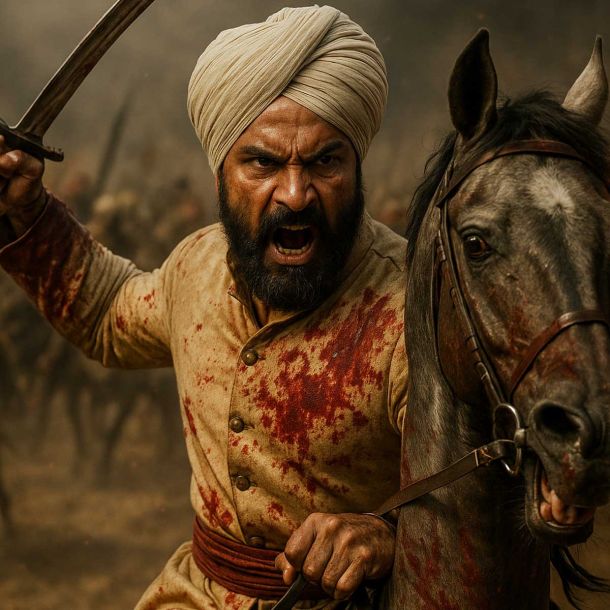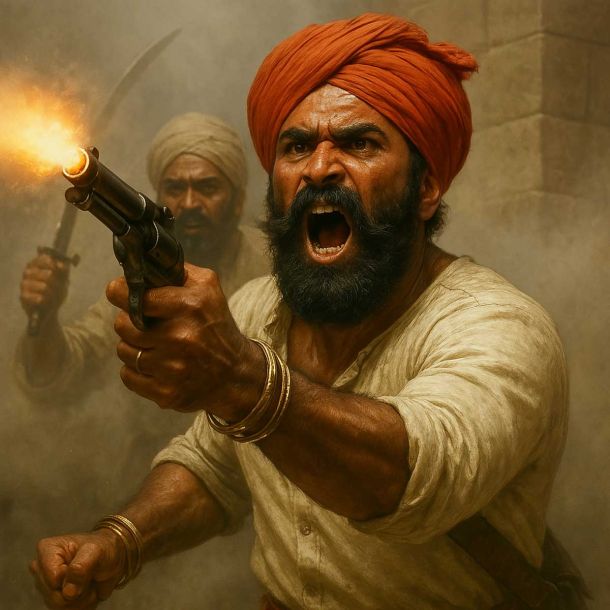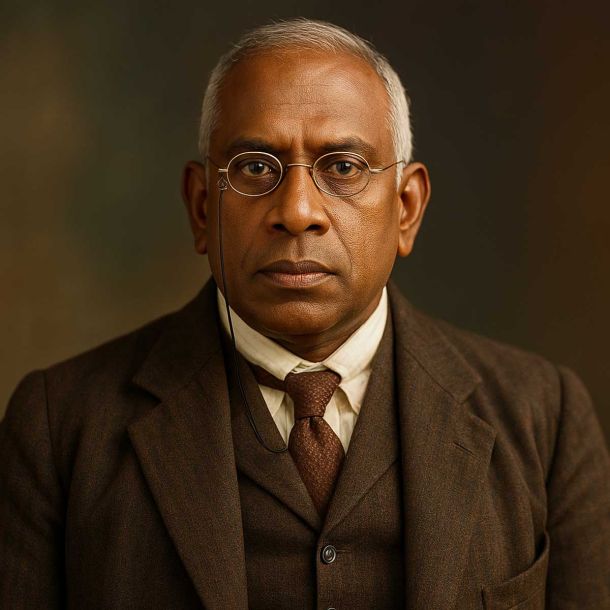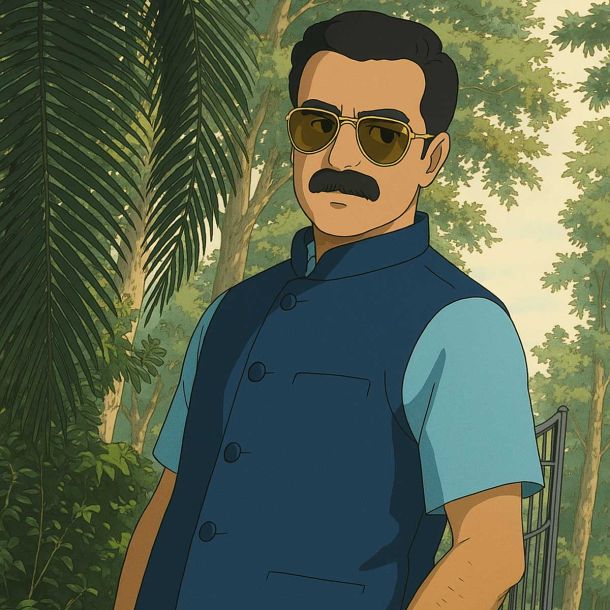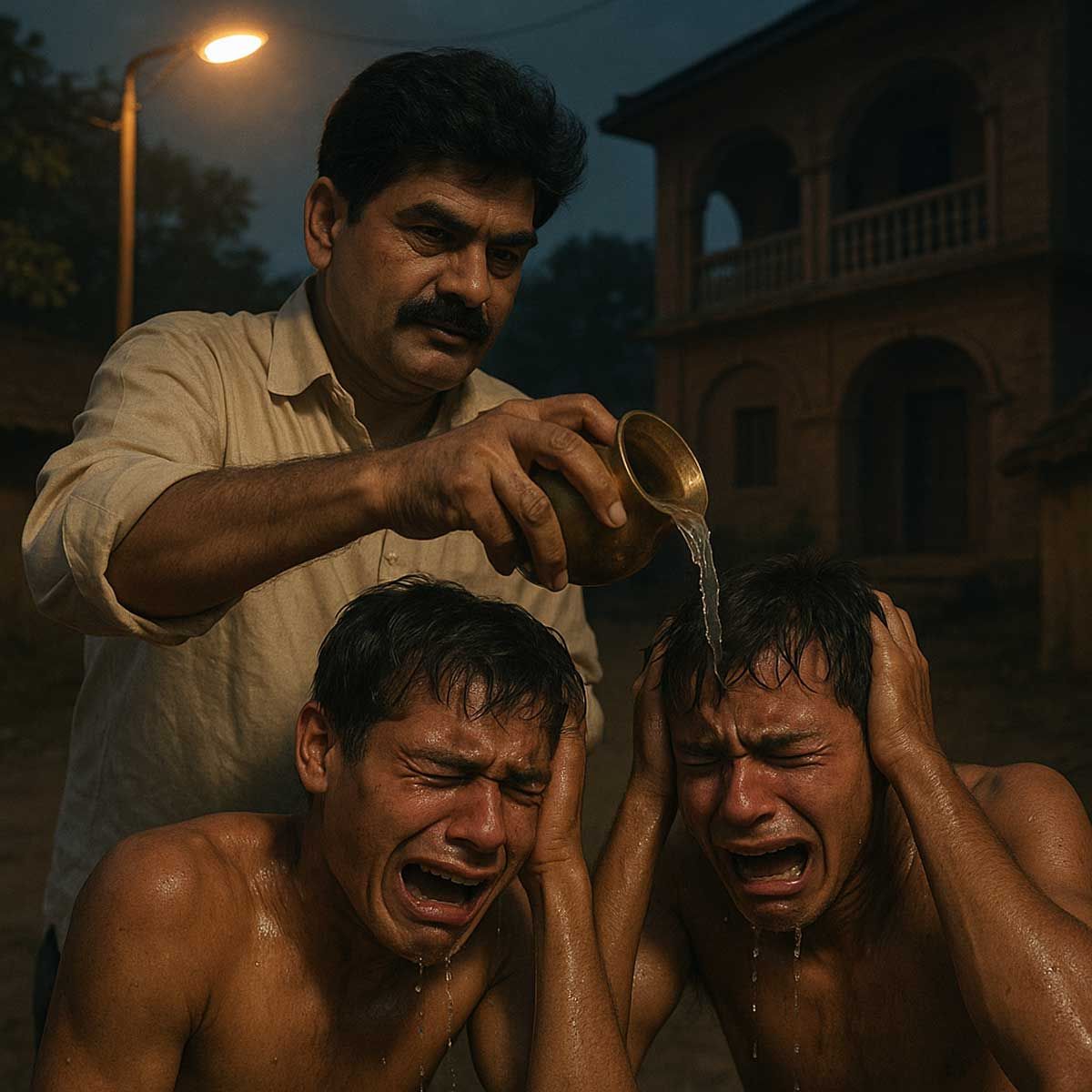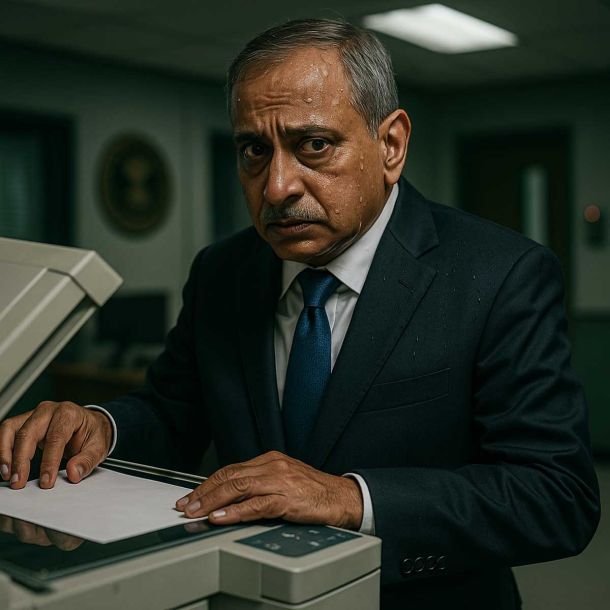MORE COVERAGE
Historian with Communist glasses: When Pandit Nehru rose to unrivalled power and position in India his book 'Glimpses of World History' was recommended as a reliable reference work for advanced students of history in Indian universities
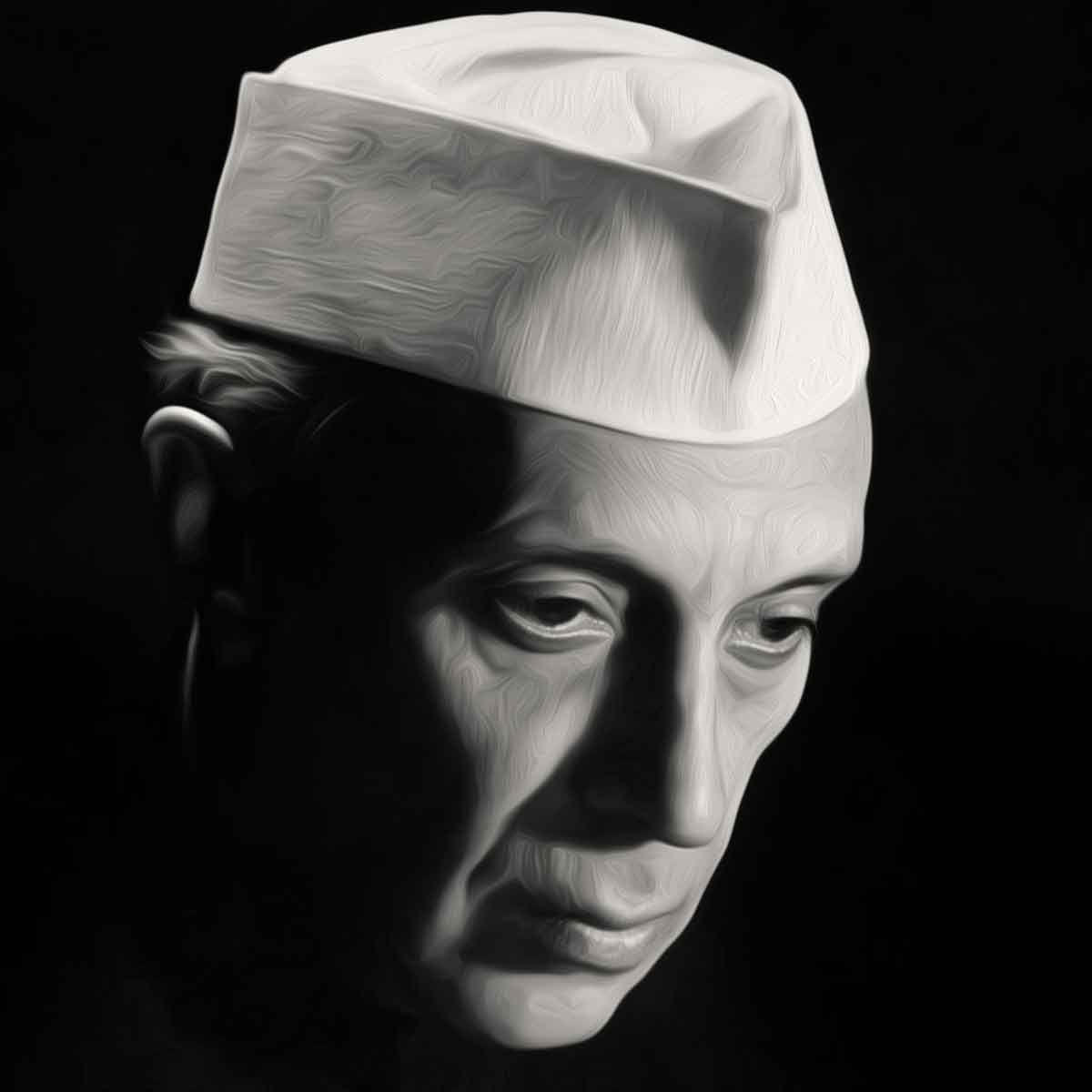
Pandit Nehru's second book, Glimpses of World History, was first published in India in 1934 and later on in England in 1939. The second edition which was "revised and, to a considerable extent, rewritten", carried a foreword from Krishna Menon who was mainly responsible for getting it published in England. Krishna Menon says: "Glimpses of World History is no mere narrative of events, valuable as the work is in this respect, but also a reflection of the author's personality."1
When Pandit Nehru rose to unrivalled power and position in India his toadies recommended this book as a reliable reference work for advanced students of history in our universities. As this book has been reprinted many times, translated into several languages of India, and poisoned successive generations of Indian intelligentsia, the ideas it lays down about Communism and Soviet Russia are of particular interest and deserve to be presented in some detail.
In this book, he dismisses non-Marxist schools of Socialism in a single chapter while he devotes two chapters to Marx and Marxism. He is infatuated with the "arresting personality" of Karl Marx, notwithstanding the fact that most of Marx's contemporaries found him intolerant, cantankerous, and abusive. Marx's labyrinthine work, Das Capital (which, we are absolutely sure, he has never read), is for him "a purely scientific work" in which "he dealt with the development of history and economics dispassionately and scientifically, avoiding all vagueness and idealism".2
In his opinion, "Marx did not preach class conflict. He showed that in fact it existed, and had always existed in some form or other. His object in writing Capital was 'to lay bare the economic law of motion of modern society', thus uncovering these fierce conflicts between different classes in society. These conflicts are not always obvious as class struggles, because the dominant class always tries to hide its own class character. But when the existing order is threatened, then it throws away all pretense and its real character appears, and there is open warfare between the classes. Forms of democracy and ordinary laws and procedures all disappear when this happens. Instead of these class struggles being due to misunderstanding or the villainy of agitators, as some people say, they are inherent in society, and they actually increase with a better understanding of the conflict of interests."3
He is very critical of the leaders of the Second International as against those of the Third International or the Communist International (Comintern). He says: "This International had many people in its ranks who later took high office in their countries. Some used the labour movement for their own advancement and then deserted it. They became prime ministers and presidents and the like; they had succeeded in life, but the millions who had helped them on and had faith in them were deserted and left where they were. These leaders, even those who swore by the name of Marx or were fiery syndicalists, went into parliament or became well-paid trade-union chiefs, and it became more and more difficult for them to risk their comfortable positions in rash undertakings. So they quietened down, and even when the masses of the workers, forced by desperation, became revolutionary and demanded action, they tried to keep them down. Social democrats of Germany became (after the War) president and chancellor of the Republic; in France Briand, fiery syndicalist preaching the General Strike, became prime minister eleven times and crushed a strike of his old comrades; in England, Ramsay MacDonald became prime minister, and deserted his own Labour Party which had made him; so also in Sweden, Denmark, Belgium, Austria. Western Europe today is full of dictators and people in authority who were socialist in their earlier days. But as they aged, they mellowed down and forgot their old-time colleagues. Mussolini, the Duce of Italy, is an old socialist; so also is Pilsudski, the Dictator of Poland."4
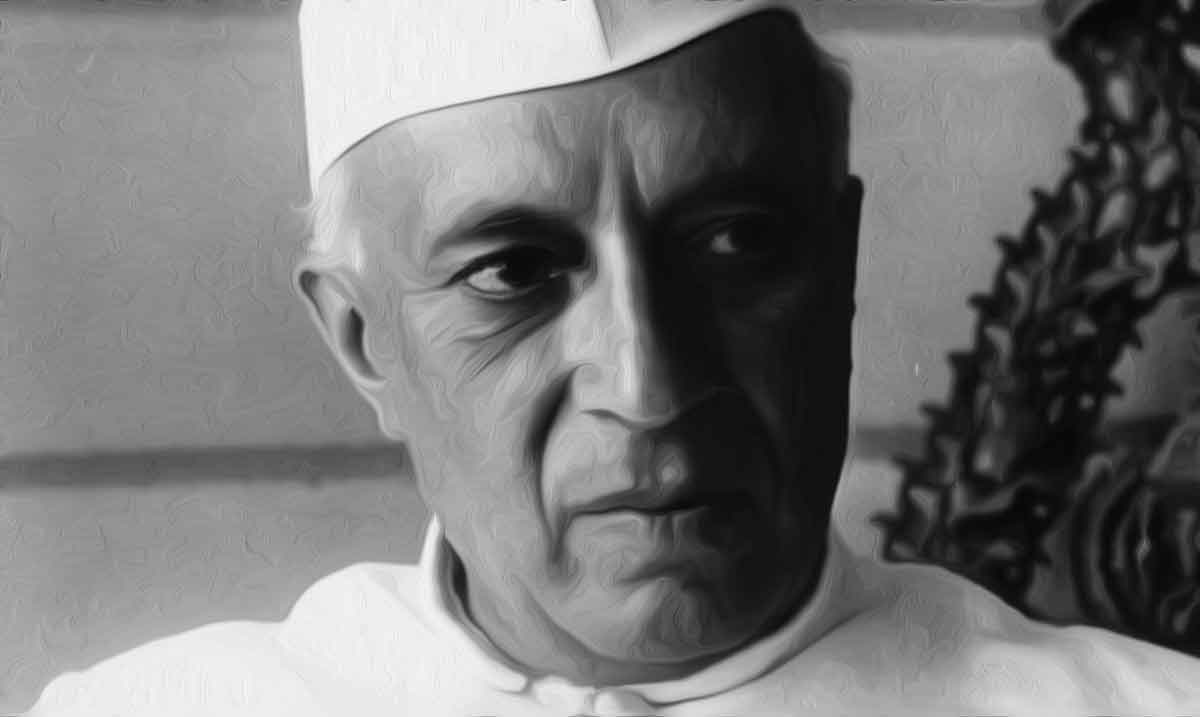 |
It did not occur to him that the leaders of the Third International had also become presidents and prime ministers and had come to occupy "high office". The communist leaders, of course, did not desert the working class. They destroyed the working-class movement itself by the mass murder of its vanguard and by depriving it of the right to form trade unions and go on strike against oppression and exploitation. Compared to the communist dictatorships, the dictatorship of Mussolini and Pilsudski sounded like liberal democracy. But for Pandit Nehru, a dictator meant a patriot who destroyed the communist Trojan horse in order to save his country from Soviet imperialism.
Next, he comes to the Soviet Union. And this is what he writes about Stalin's Russia of the thirties: "Russia today is a Soviet country, and its government is run by representatives of the workers and peasants. In some ways, it is the most advanced country in the world. Whatever actual conditions may be, the whole structure of government and society is based on the principle of social equality".5 How did this Russia happen to come into existence? Not as a result of a coup d'etat staged by a traitorous gang of assassins equipped with plentiful German gold. For Pandit Nehru, what happened in Russia in the November of 1917 was a "unique revolution" which he wishes to see spread over many more countries. He says: "Apart from its effect on the war, the Revolution was in itself a tremendous event, unique in world history. Although it was the first revolution of its kind, it may not long remain the only one of its type, for it has become a challenge to other countries and an example for many revolutionaries all over the world."6 Again: "The March Revolution had been a spontaneous unorganized one, the November one had been carefully planned out. For the first time in history the representatives of the poorest classes, and especially of the industrial workers, were at the head of a country."7
His opinion about Lenin, the author of a premeditated civil war and slaughter on an unprecedented scale, is equally enthusiastic. "There was," he says, "no doubt or vagueness in Lenin's mind. His were the penetrating eyes which detected the moods of the masses; the clear head which could apply and adapt well-thought-out principles to changing situations; the inflexible will which held on to the course he had mapped out, regardless of immediate consequences."8 Again: "It is not many years since he died, and already Lenin has become a mighty tradition, not only in his native Russia but in the world at large. As time passes he grows greater; he has become one of the chosen companies of the world's immortals. Petrograd has become Leningrad, and almost every house in Russia has a Lenin corner or a Lenin picture. But he lives, not in monuments or pictures, but in the mighty work he did, and in the hearts of hundreds of millions of workers today who find inspiration in his example and the hope of a better day."9
Coming to the post-war period, he writes: "What are the outstanding events, then, of these past fourteen years? First, in importance, I think, and most striking of all has been the rise and consolidation of the Soviet Union, the U.S.S.R., or the Union of Socialist and Soviet Republics, as it is called. I have told you already something of the enormous difficulties which Soviet Russia had to face in its fight for existence. That it won in spite of them is one of the wonders of this century. The Soviet system spread all over the Asiatic parts of the former Tsarist Empire, from Siberia right up to the Pacific and in Central Asia to within hail of the Indian frontier. Separate Soviet republics were formed, but they federated together into one Union, and this is now the U.S.S.R. This Union covers an enormous area in Europe and Asia, which is about one-sixth of the total land area of the world. The area is very big, but bigness by itself does not mean much, and Russia, and much more so Siberia and Central Asia, were very backward. The second wonder that the Soviets performed was to transform great parts of this area out of all recognition by prodigious schemes of planning. There is no instance in recorded history of such rapid advance of a people. Even the most backward areas in Central Asia have gone ahead with a rush which we in India might well envy."10
He accepts the Leninist doctrine of an irreconcilable conflict between "capitalism" and "socialism". He writes: "But the conflict has not ended and the fight between the two rival forces-capitalism and socialism goes on. There can be no permanent compromise between the two although there have been, and there may be in the future, temporary arrangements and treaties between the two. Russia and communism stand at one pole, and the great capitalist countries of Western Europe and America stand at the other. Between the two, the liberals, the moderates, and the center parties are disappearing everywhere."11
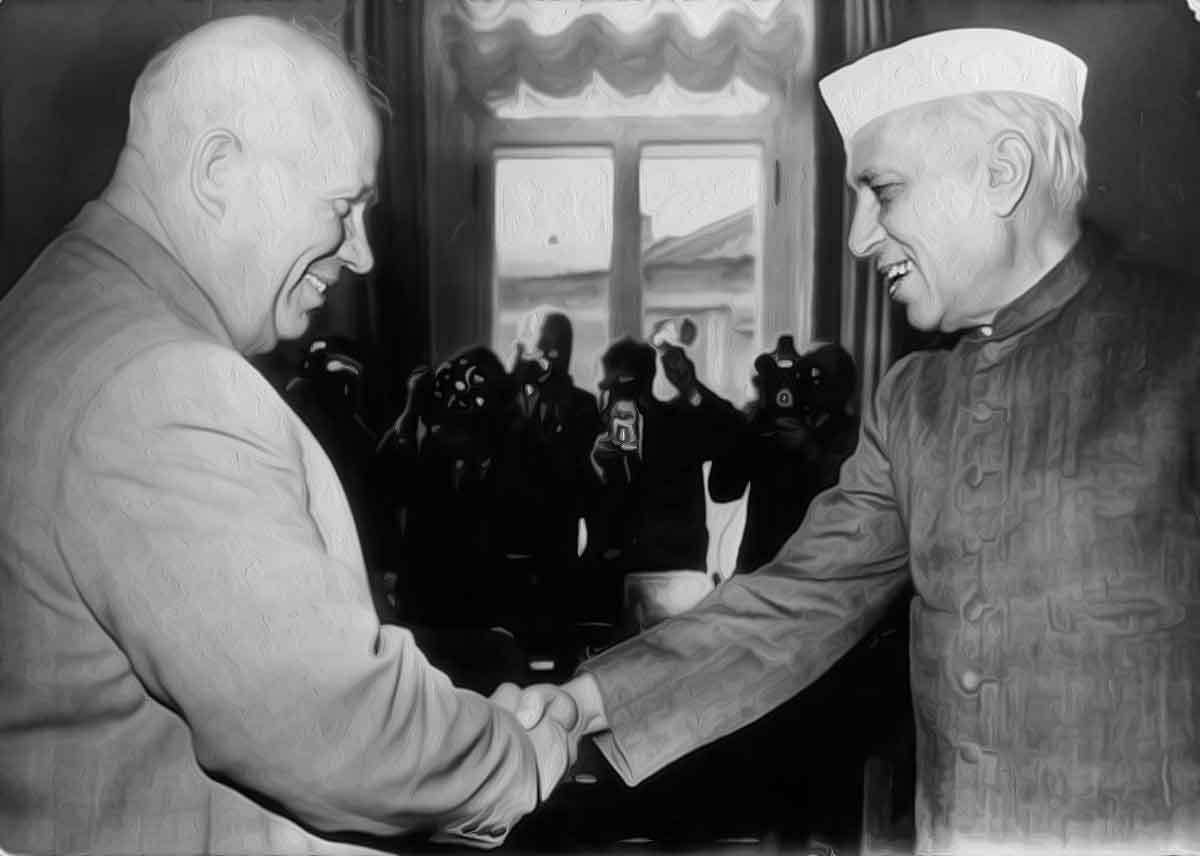 |
Talking about the rise of dictatorships in Europe, he says: "I have not included the Soviet Union in the above list of dictatorships, because the dictatorship there, although as ruthless as any other, is of a different type. It is not the dictatorship of an individual or a small group, but of a well-organized political party basing itself, especially on the workers. They call it the 'dictatorship of the proletariat'."12
Justifying this judgement, he quotes the communist theory in the following words: "I have referred to democracy as 'formal' in the preceding paragraph. The communists say that it was not real democracy: it was only a democratic shell to hide the fact that one class ruled over the others. According to them, democracy covered the dictatorship of the capitalist class. It was a plutocracy, a government by the wealthy. The much-paraded vote given to the masses gave them only the choice of saying once, in four. or five years, whether a certain person, X, might rule over them and exploit them or another person, Y, should do so. In either event, the masses were to be exploited by the ruling class. Real democracy can only come when this class rule and exploitation end and only one class exists. To bring about this socialist State, however, a period of the dictatorship of the proletariat is necessary so as to keep down all capitalist and bourgeois elements in the population and prevent them from intriguing against the workers' State. In Russia, this dictatorship is exercised by the Soviets in which all the workers and peasants and other 'active' elements are represented. Thus it becomes a dictatorship of the 90per cent over the remaining 10 or 5 percent. That is the theory. In practice, the Communist Party controls the Soviets and the ruling clique of communists controls the party. And the dictatorship is as strict, so far as censorship and freedom of thought or action are concerned, as any other. But as it is based on the goodwill of the workers it must carry the workers with it. And, finally, there is no exploitation of the workers or any other class for the benefit of another. There is no exploiting class left. If there is any exploitation, it is done by the State for the benefit of all."13
The Soviet Union was, in his eyes, the model of a peaceful nation. He says: "Soviet policy with other nations was one of peace at almost any cost, for they wanted time to recuperate, and the great task of building up a huge country on socialistic lines absorbed their attention. There seemed to be no near prospect of social revolution in other countries, and so the idea of a 'world revolution' faded out for the time being. With Eastern countries, Russia developed a policy of friendship and co-operation, although they were governed under the capitalist system."14
The Soviet Union had produced a "miracle" by solving her problem of minorities. He writes:
"This Soviet solution of the minorities problem has interest for us, as we have to face a difficult minority problem ourselves. The Soviets' difficulties appear to have been far greater than ours, for they had 182 different nationalities to deal with. Their solution to the problem has been very successful. They went to the extreme length of recognizing each separate nationality and encouraging it to carry on its work and education in its own language. This was not merely to please the separatist tendencies of different minorities, but because it was felt that real education and cultural progress could take effect for the masses only if the native tongues were used. And the results achieved already have been remarkable.
"In spite of this tendency to introduce a lack of uniformity in the Union, the different parts are coming far nearer to each other than they ever did under the centralized government of the Tsars. The reason is that they have common ideals and they are all working together in a common enterprise. Each Union Republic has in theory the right to separate from the Union whenever it wants to, but there is little chance of its doing so, because of the great advantages of the federation of socialist republics in the face of the hostility of the capitalist world…
"These Central Asian republics have a special interest for us because of our age-old contact with Middle Asia. They are even more fascinating because of the remarkable progress they have made during the past few years. Under the Tsars they were very backward and superstitious countries with hardly any education and their women mostly behind the veil. Today they are ahead of India in many respects."15
But his greatest admiration is reserved for the First Five Year Plan implementation in which Stalin murdered millions of peasants and workers. He writes at length: "This Five Year Plan had been drawn up after the most careful thought and investigation. The whole country had been surveyed by scientists and engineers, and numerous experts had discussed the problem of fitting one part of the program into another. For, the real difficulty came in this fitting in... But Russia had one great advantage over the capitalist countries. Under capitalism, all these activities are left to individual initiative and chance, and owing to competition there is a waste of effort. There is no coordination between different producers or different sets of workers, except for the chance coordination which arises in the buyers and sellers coming to the same market... The Soviet Government had the advantage of controlling all the different industries and activities in the whole Union, so it could draw up and try to work on a single coordinated plan in which every activity found its proper place. There would be no waste in this, except such waste as might come from errors of calculation or working, and even such errors could be rectified far sooner with a unified control than otherwise."16
The wanton and wholly unnecessary starvation forced on the people of the Soviet Union was, for him, the only evidence of "a spirit of sacrifice". In his own words:
"For Russia, therefore, this building of heavy industries at a tremendous pace meant a very great sacrifice. All this construction, all this machinery that came from outside, had to be paid for and paid for in gold and cash. How was this to be done? The people of the Soviet Union tightened their belts and starved and deprived themselves of even necessary articles so that payment could be made abroad. They sent their foodstuffs abroad, and with the price obtained for them paid for the machinery. They sent everything they could find a market for wheat, rye, barley, corn, vegetables, fruits, eggs, butter, meat, fowls, honey, fish, caviare, sugar, oils, confectionery, etc. Sending these food articles outside meant that they themselves did without them. The Russian people had no butter, or very little of it because it went abroad to pay for machinery. And so with many other goods...
 |
"Nations have, in the past, concentrated all their efforts on the accomplishment of one great task, but this has been so in times of war only. During the World War, Germany and England and France lived for one purpose only - to win the war. To that purpose, everything else was subordinated. Soviet Russia, for the first time in history, concentrated the whole strength of the nation in a peaceful effort to build, and not to destroy, to raise a backward country industrially and within a framework of socialism."17
But the credit for these "achievements" should, in his opinion, go to Stalin, and Stalin alone. In his own words: "But the privation, especially of the upper and middle-class peasantry, was very great, and often it seemed that the whole ambitious scheme would collapse, and perhaps carry the Soviet Government with it. It required immense courage to hold on. Many prominent Bolsheviks thought that the strain and suffering caused by the agricultural program were too great and there should be relaxation. But not so Stalin. Grin-fly and silently he held on. He was no talker, he hardly spoke in public. He seemed to be the iron image of an inevitable fate going ahead to the predestined goal. And something of his courage and determination spread among the members of the Communist Party and other workers in Russia."18
And Stalin's victims were only "capitalist elements and saboteurs". According to Pandit Nehru, "But, as I have told you, this Five Year Plan brought much suffering, and difficulties and dislocation. And people paid a terrible price willingly and accepted the sacrifices and sufferings for a few years in the hope of a better time afterward; some paid the price unwillingly and only because of the compulsion of the Soviet Government. Among those who suffered most were the kulaks or richer peasants. With their great wealth and special influence, they did not fit into the new scheme of things. They were capitalistic elements that prevented the collective farms from developing on socialist lines. Often they opposed this collectivization, sometimes they entered the collectives to weaken them from the inside or to make undue personal profit out of them. The Soviet Government came down heavily on them. The Government was also very hard on many middle-class people whom it suspected of espionage and sabotage on behalf of its enemies. Because of this, large numbers of engineers were punished and sent to jail."19
Now we know the truth about Stalin's collectivization and forced industrialization. We know that the people who resisted this totalitarian tyranny were not capitalists or kulaks but millions of ordinary workers and peasants who were given a bad name by Stalin so that they could be liquidated. But Pandit Nehru's brain had been washed by communist propaganda so systematically and so completely that he became a willing victim of this semantic fraud and wanted to share his own imbecility with his countrymen at large. And he did succeed to a significant extent with the active assistance of the communist propaganda machine which was fast multiplying inside India in the thirties.20
Footnotes
- Jawaharlal Nehru, Glimpses of World History, Lindsay Drummond, London, 1949, p, vi. On p.2 of this book, he congratulates his daughter, Indira, in the following words: "The year you were born in - 1917 - was one of the memorable years of history... In the very month, you were born, Lenin started the great Revolution which has changed the face of Russia and Siberia. (Footnote added in 1993.)
- Ibid., p. 539
- Ibid., p. 547
- Ibid., pp. 541-42
- Ibid., p. 597. Italics added
- Ibid., p. 638
- Ibid., p. 649. Italics added
- Ibid. p. 643
- Ibid., p. 660
- Ibid. pp. 685-86. Italics added
- Ibid., p. 787
- Ibid., p. 822. Italics added
- Ibid., p. 824. Italics added
- Ibid., pp. 847-48
- Ibid., pp. 850-51. Italics added.
- Ibid., pp. 853-54.
- Ibid., p. 855. Italics added.
- Ibid. pp. 855-56. Italics added.
- Ibid., p. 857.
- Pandit Nehru has seen the history of many countries including India through the same communist glasses. He drops those glasses only when he comes to the rise of Islam and its imperialism. (Footnote added in 1993.)
 Support Us
Support Us
Satyagraha was born from the heart of our land, with an undying aim to unveil the true essence of Bharat. It seeks to illuminate the hidden tales of our valiant freedom fighters and the rich chronicles that haven't yet sung their complete melody in the mainstream.
While platforms like NDTV and 'The Wire' effortlessly garner funds under the banner of safeguarding democracy, we at Satyagraha walk a different path. Our strength and resonance come from you. In this journey to weave a stronger Bharat, every little contribution amplifies our voice. Let's come together, contribute as you can, and champion the true spirit of our nation.
 |  |  |
| ICICI Bank of Satyaagrah | Razorpay Bank of Satyaagrah | PayPal Bank of Satyaagrah - For International Payments |
If all above doesn't work, then try the LINK below:
Please share the article on other platforms
DISCLAIMER: The author is solely responsible for the views expressed in this article. The author carries the responsibility for citing and/or licensing of images utilized within the text. The website also frequently uses non-commercial images for representational purposes only in line with the article. We are not responsible for the authenticity of such images. If some images have a copyright issue, we request the person/entity to contact us at This email address is being protected from spambots. You need JavaScript enabled to view it. and we will take the necessary actions to resolve the issue.
Related Articles
- A Pilgrim to the Soviet Paradise - Genesis and Growth of Nehruism Vol 1
- The Basis of Universal Spirituality - Defence of Hindu Society
- During Partition Hindu and Sikh refugees concentrated in Delhi to a humiliating and dehumanizing experience whereas Muslim were being provided with rations, funds, jobs and shelter: MK Pahwa try to assassinate Gandhi
- Birth of our National Anthem: Original recording of 'Jana Gana Mana' performed by the Radio Symphony Orchestra of Hamburg, Germany, 1942 in the presence of Netaji Subhash Chandra Bose
- Nehru lost election and became first Prime Minister of free India: All thanks to miraculous Gandhi
- In Search of a Culprit - Genesis and Growth of Nehruism Vol 1
- The first large-scale massacre in Independent India accounts for one of the biggest coverups in modern history: It is about time we talk about the 1948 genocide of Maharashtrian Brahmins following MK Gandhi’s assassination
- India captured Haji Pir Pass in 1965 after a daring operation, but returned it in 1966 at Tashkent, losing a vital infiltration block; decades later, that strategic blunder by Congress still fuels cross-border terror and haunts India’s national security
- Sanãtana Dharma Versus Prophetic Creeds - Defence of Hindu Society
- Netaji, an Impossible man can never be boxed into an ideological corner: Not just the most enigmatic figure in world history but his life is also a tough lesson in how to think about history
- Nehru's Himalayan Blunders which costed India dearly - Pre-Independence
- Hindu seers and sages could tap sources of universal spirituality because they did not start with an a priori assumption of an Almighty God whom man had to fear and obey in awe and objection - Defence of Hindu Society
- Hindu Spirituality Versus Monotheism - Defence of Hindu Society
- Indian state bans book on Mahatama Gandhi after reviews hint at his gay relationship
- How Nehru had laid blue print of Indira Gandhi inheriting his PM post
Related Articles
Twitter Coverage
Satyaagrah
Written on
Satyaagrah
Written on
Satyaagrah
Written on
Satyaagrah
Written on
Satyaagrah
Written on
